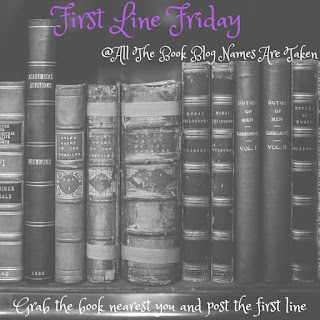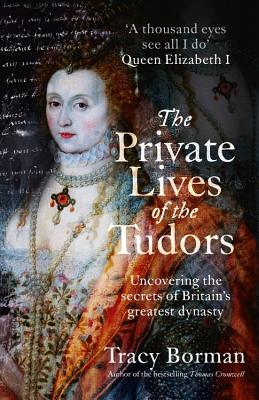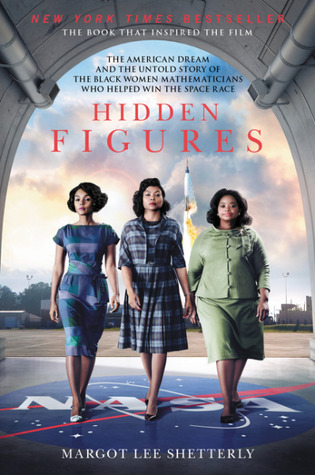Rating: 3 Stars
Hooray! Book one in my quest to read more about all of our presidents. I am not sure why this has suddenly become so interesting to me. Perhaps because of the absolute cluster my country is in right now in electing someone so unqualified for the job, we may actually be involved in a nuclear war as a result. As a result, I guess I want to learn as much as I can about the men who WERE qualified, more or less.
This was a good place to start, as it was about multiple presidents. However, I wavered a while between two and three stars due to a plethora of snarky comments throughout. They seemed kind of out of place for a book that was purporting to look at these men both as fathers and presidents, and how that combination made them better or worse at the job. I will also freely admit that I may have been a little sensitive to those directed at President Obama, considering we are within his last week in office, and for the next four years we won't have a president, but a spoiled child who fights with people on Twitter.
But I digress.
The book is divided into six chapters, for six kinds of dads as the author has grouped them. Each chapter then follows roughly the same format, as the author opens with several pages dedicated to one president and how he fit in the specific mold as the author described. Then the author addressed several other presidents in shorter paragraphs, before returning to the initial president discussed, or then moving on to another president again in greater detail.
Chapter One: The Preoccupied
Here the author delves into the lives of FDR, LBJ, and Jimmy Carter quite deeply. From what I interpret, the author considers a preoccupied dad to be one who was away from his children for long periods of time and/or focused almost solely on himself and his political career.
The author really seemed to have it in for LBJ. He kept describing him as self-absorbed, egotistical, etc. There were a lot of sweeping generalizations and no back-up for how he arrived at these conclusions. I really used to dislike LBJ also, but I read a book a few months ago about him and JFK that has started to change my perspective, and to see how much the Kennedy Machine contributed to the negatives about LBJ being put forth. He is not perfect by any means, but I do think he has been judged unfairly.
Additional presidents addressed in shorter paragraphs include Jimmy Carter, Martin Van Buren, James Polk, Zachary Taylor, William Howard Taft, Herbert Hoover, Richard Nixon, Ronald Reagan, George H.W. Bush and Bill Clinton.
Chapter Two: Playful Pals
The in-depth looks in this chapter focus on Ulysses S. Grant, Theodore Roosevelt, and Woodrow Wilson. I was especially surprised to see Wilson in this chapter, as in the past he has struck be as anything but playful. The author addresses this issue though, saying that Wilson was very different with his children, a side the public rarely, if ever, saw.
This chapter is where the lack of footnotes or references to research began to bother me. At one point the author states that, in regards to Grant, "...but he drank not because he was an anti-social misfit, but because he was a sensitive family man who simply could not stand to be without his nearest and dearest" (page 73). This may be true, but how did the author come to this conclusion? Perhaps I am in the minority, but I feel like when an author makes statements like this, it is probably a good idea to indicate where in the notes section this information can be found. (Also, the misuse of the word anti-social irritates me, but that is unrelated. If someone does not like to socialize, they are NON-social. Someone who is anti-social seeks to disrupt society by not following rules, norms, laws, etc. But seeing as how anti-social usage has become the norm for someone non-social, I think this is a lost cause.)
The author considers James Buchanan, Chester A. Arthur, and George W. Bush to also be playful pals to their children, in that they were permissive type parents who didn't set boundaries for their children and as a result: "...like Alan Arthur, Grant's two younger sons Ulysses Jr and Jesse, as well as TR's son Kermit, would remain irresponsible well into adulthood and never find a meaningful purpose for their lives" (page 78)
Chapter Three: Double-Dealing Dads
First of all, I never knew John Tyler was so gross. He had a bunch of kids with his slaves, allegedly threw sex parties at the White House, and is the only president to ever be a traitor to his own country when he sided with the Confederacy (up until the Screaming Cheeto takes office on the 20th. Typing those words made me throw up in my mouth a little. Ugh.) I can not imagine a worse crime, once one has been president; Tyler was one of five former presidents still alive when the Civil War began and the ONLY one to support the Confederacy and hold an office when he was elected to the Confederate Congress. So, yeah, gross. Additionally, there were several pages each devoted to Grover Cleveland and Warren G. Harding.
To qualify as a double-dealing parent, he must be someone who has betrayed his children in some way, specifically those children he fathered outside his marriage(s). As such, Kennedy and Clinton, whose sexual exploits are well-documented, were not included in this chapter because they were 'caring parents' - and as far as we know (though I have a hard time believing) they had no children outside of their marriages. To cement this idea, the author states, "...but not every president who pursued numerous extramarital affairs qualifies as a double-dealing dad - defined as one who betrays his children" (139). Again, children born outside of his marriage. As I read on, an additional qualifier emerged as to what made a 'double-dealing dad'. With the example of Millard Fillmore, he remarried and had more children with his second wife. As the relationship with his children from his first marriage became strained, he eventually disinherited them.
Other dads mentioned in this chapter include Thomas Jefferson, William Henry Harrison and even possibly George Washington and Andrew Johnson. Also, Millard Fillmore, LBJ, Benjamin Harrison, Grover Cleveland and Warren Harding
I really, really hope NOT George Washington, as there was a time he was my favorite president. But as I have learned more about him in my adult years, the shiny veneer on our first president is fading a bit and I am not sure I could handle finding out anything else about him that is less than savory. Ultimately, there is no evidence beyond stories passed down from generation to generation, so until there is something concrete, he does not qualify.
Chapter Four: Tiger Dads
This chapter was devoted to presidents who, as fathers, were very tough on their children in regards to academics especially. These fathers were very controlling and specific about what they wanted their children to do and to be. Specific presidents who were given several pages to show this were John Adams, John Quincy Adams (no surprise there, considering how his father treated him, and the behaviors of his siblings), and Dwight Eisenhower. It took me a bit with the last chapter and this chapter to identify what exactly the author meant by his labels. It is not as straight forward as one might think sometimes, and trying to decipher the author's specific meaning took a bit of thinking.
Chapter Five: The Grief-Stricken
While the topic of children dying is a sad one, and not something I want to spend a lot of time thinking about because I ALWAYS over-identify and think about how horrible it would be to be in that position, the chapter begins with Franklin Pierce. This was a good thing in that so far, I have not found any books about him. Even so, I would not wish anyone into this category, as no parent should ever have to bury their child. After several pages devoted to Pierce, William McKinley and Calvin Coolidge were also given ample amounts of space.
Shorter paragraphs and mentions include John Adams, John Quincy Adams, Thomas Jefferson, James Madison, William Henry Harrison, Martin Van Buren, John Tyler, Zachary Taylor, James Garfield, Rutherford B Hayes, Abraham Lincoln, Dwight Eisenhower, George H.W. Bush, JFK, Grover Cleveland, FDR, Chester Alan Arthur, Andrew Johnson, and Ronald Reagan.
Chapter Six: The Nurturers
The final chapter begins with an in-depth look at Rutherford B Hayes and his dedication to his children. Truman was also given several pages, and the author ended the chapter with analysis of Barack Obama and his daughters.
Other presidents who garnered attention in this category included Washington, Madison, Monroe, Garfield, and Ford.
Once again though, here the snarkiness reared its ugly head when the author stated, "Unlike preoccupied First Dads such as FDR and LBJ, who loved the spotlight and could not stop thinking about politics, Hayes was a homebody who enjoyed immersing himself in the daily lives of his children" (page 297). These kinds of comments are what made me take this author a little less seriously, because he comes across as biased toward or against certain presidents.
The two comments directed at President Obama were poorly timed - perhaps I should not have been reading this book so close to the end of his term because I really am emotional about this right now.
First: "At times, Obama, too, has been blinded by the unrealistic hope that gentle persuasion was all that was needed to achieve his political goals" (page 346). I think we all needed a little hope after the eight years of W, and if we didn't, Obama would not have been elected twice. Obama's legacy is already beginning to be dismantled as we speak, with what Congress has started doing to ACA. Had Congress been willing to compromise and work with President Obama, instead of stalling him at every turn, our country would be in much better shape right now.
But the second is by far the worse of the two. "Was Obama perhaps too devoted a parent to be a great president?" (page 347). Hell. No. Even with having his hands tied repeatedly by Congress, President Obama will be looked at very favorably in history as one of our greatest presidents.
All in all, I learned quite a bit about most of the men who have guided our country since its birth. Most of these stories made them very human, instead of the almost infallible figures the more distant ones have become. I would still recommend the book in that regards, though I could have done without some of the snide comments.



















